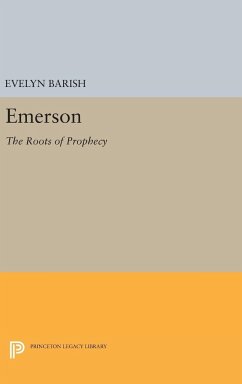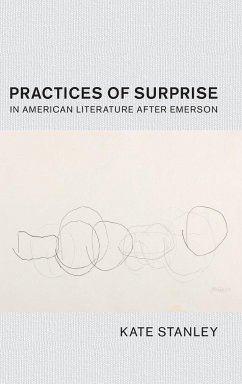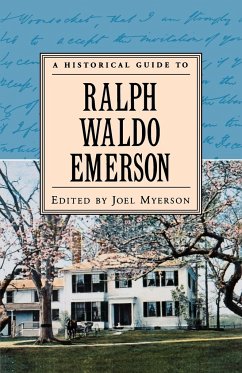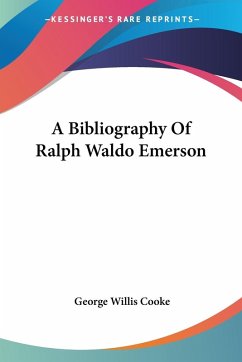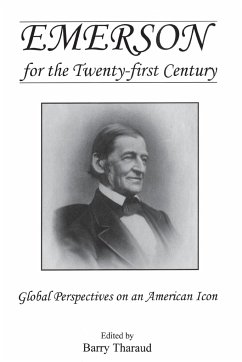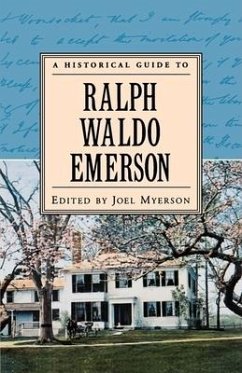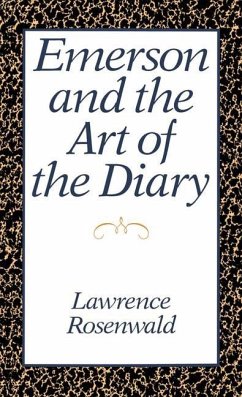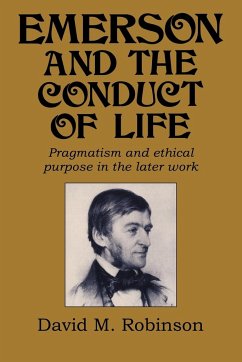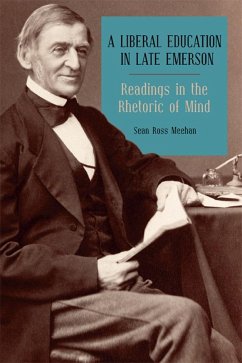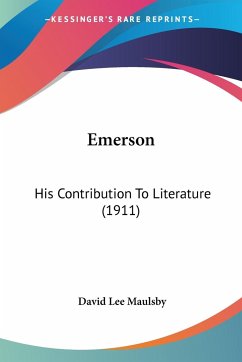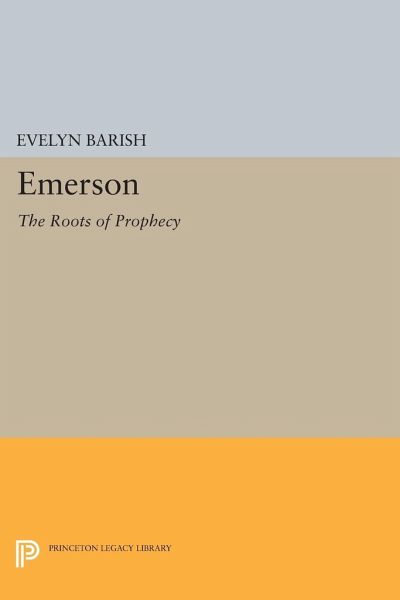
Emerson
The Roots of Prophecy

PAYBACK Punkte
17 °P sammeln!
Evelyn Barish began this book partly to inquire into a silence--Ralph Waldo Emerson's failure to discuss or mourn his father, who died when the boy was seven years old. As she probed the meaning of this loss, she found herself tracing the development of an American prophet, producing a detailed intellectual biography of Emerson's early years up to the writing of Nature. In the process she has painted a vivid picture of American society of the period and of Emerson's unusual family--including his aunt, Mary Moody Emerson, a brilliant and eccentric woman, who was described by Emerson as spinning...
Evelyn Barish began this book partly to inquire into a silence--Ralph Waldo Emerson's failure to discuss or mourn his father, who died when the boy was seven years old. As she probed the meaning of this loss, she found herself tracing the development of an American prophet, producing a detailed intellectual biography of Emerson's early years up to the writing of Nature. In the process she has painted a vivid picture of American society of the period and of Emerson's unusual family--including his aunt, Mary Moody Emerson, a brilliant and eccentric woman, who was described by Emerson as spinning at a higher velocity than all the other tops but who also rode around Concord in her shroud! In the years after the death of William Emerson, Mary Moody Emerson came to help her widowed sister-in-law, Ruth, rear her five sons and thus became a deep influence on the young Ralph Waldo. Barish reveals the complexities of the Emersons' family life, the preoccupations with death and questions of sexual identity in the Romantic fantasies that Emerson wrote as a youth, the emotional struggles of his student years at Harvard, and his private study of the unsettling ideas of the skeptical philosopher David Hume. Pursuing a series of small clues, she clears up the obscurity surrounding the crucial breakdown of his health during the vocational crisis of his twenties. Finally, she traces his path out of fear and self-doubt into autonomy, as he overcame crippling grief after the death of his first wife. Barish makes it clear how Emerson the American classic thinker emerged from a welter of conflicts and handicaps previously obscure to us. How did he free himself from the rigor mortis of his own cultural and personal past--from what he called the "corpse-cold Unitarianism of Brattle Street and Harvard College"--to become the liberator of America from the intellectual shackles of its colonial experience? Her answer redefines Emerson's "self-reliance" not in traditional transcendent or idealistic terms but as the result of real life and hard struggle--experience "passed through the fire of thought." Originally published in 1990. The Princeton Legacy Library uses the latest print-on-demand technology to again make available previously out-of-print books from the distinguished backlist of Princeton University Press. These editions preserve the original texts of these important books while presenting them in durable paperback and hardcover editions. The goal of the Princeton Legacy Library is to vastly increase access to the rich scholarly heritage found in the thousands of books published by Princeton University Press since its founding in 1905.



